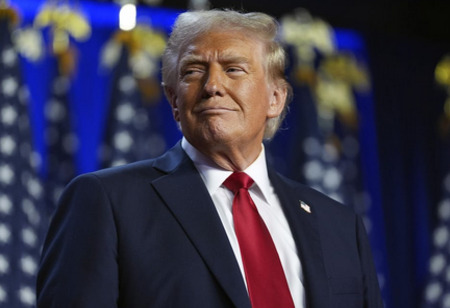
Donald Trump May Offer Tariff Exemptions to a Lot of Countries


According to reports, US President Donald Trump might offer tariff exemptions to a lot of countries and unveil additional tariffs on automobiles in the coming days.
Trump specified that not all tariff announcements would occur on April 2 and indicated that he could provide breaks to "many countries," although he did not specify which ones.
Reports suggest that these tariffs might target specific sectors like autos, pharmaceuticals, or semiconductor chips would be implemented, indicating that the timing remains TBD (to be determined) and at the president's discretion. At the same time, it's believed to have delays, as the president is committed to enforcing strong reciprocal tariffs.
Previous reports claimed that the administration was fine-tuning its strategy regarding the extensive set of tariffs Trump has been discussing for weeks, which could postpone certain sector-specific actions.
In the meantime, Trump reiterated that tariffs on autos, pharmaceuticals, and aluminum would be enacted "in the very near future," arguing that these sectors are vital for national security in the event of wars or other emergencies.
Trump indicated that auto tariffs are imminent, adding that tariffs on lumber and semiconductor chips would be introduced "later on."
"We've been taken advantage of by every country," Trump stated after a cabinet meeting, forecasting that the new tariffs would yield "rather astronomical" revenue for the U.S., potentially aiding in keeping tax rates low or even reducing them.
In February, Trump proposed a 25 percent tariff on auto imports, alongside similar duties on semiconductors and pharmaceuticals. However, he later agreed to postpone certain auto tariffs after pressure from the three largest U.S. automakers, who advocated for a waiver.
Since his term began, Trump's tariff strategy has been characterized by rapid policy changes, reversals, and delays—sometimes just hours before planned execution—as his administration continues to define its trade approach.
Also Read: 6 Successful Business Ventures of Cristiano Ronaldo
Up to now, the president has enacted 20 percent tariffs on Chinese goods, reinstated 25 percent duties on global steel and aluminum imports, and imposed 25 percent tariffs on Canadian and Mexican imports that do not adhere to the North American trade agreement, citing the U.S. fentanyl overdose epidemic.

